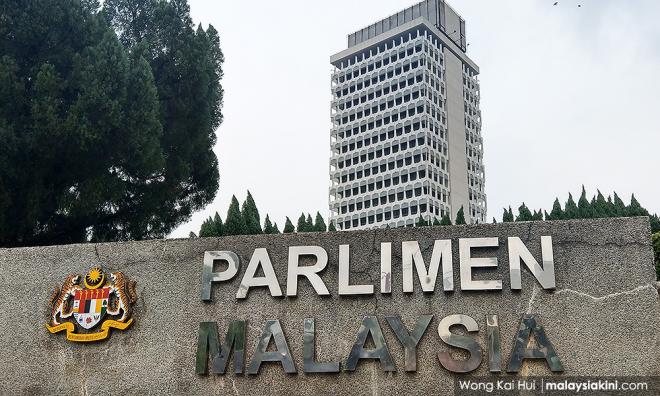
ADUN SPEAKS | Dewan Rakyat Speaker Mohamed Ariff Yusof has rejected the motion put up by Semporna MP Shafie Afdal to table a motion of confidence for Langkawi MP Dr Mahathir Mohamad, but the reason given by the former was indeed baffling and mind-boggling.
Mohamed Ariff, who is a former Court of Appeal judge, cited Article 43 (2)(a) of the Federal Constitution which gives the Yang Di-Pertuan Agong the power to appoint a prime minister as the main reason. The motion put up by the Semporna MP, he argued, was not in line with this provision.
Even though the Constitution does not mention motions of confidence, Article 43(4) nonetheless requires a premier who “ceases to command the confidence of the majority of the members of the House of Representatives” to resign. Given the position of the prime minister, that essentially means the resignation of the entire government.
The above provision obviously allows for a motion of confidence to be tabled in the House but when? Anytime. In fact, it is commonly understood in the Westminster system that if the government is defeated in the House on major policies such as the budget or Covid-19 measures it must resign.
The way to understand the relationship between the provision which empowers the Yang Di-Pertuan Agong to appoint the prime minister and the one that allows the testing of the support commanded by a sitting government is this - while the Yang Di-Pertuan Agong has been empowered to appoint the prime minister, the House is allowed to determine whether the minimum support required is there.
This is because the Yang Di-Pertuan Agong is a constitutional monarch. In fact, the term “discretion” used by Article 43(2)(a) must be understood in the constitutional sense. It is not discretion in common parlance.
That is why most of the time appointments of heads of government have become mere formalities as political parties have devised mechanisms which effectively made the so-called discretion no longer exist.
Meanwhile, Article 43(3) states clearly the relationship between the executive and the legislature, just like in other parliamentary democracies. It is to be emphasised that the government in the Westminster model is responsible to the House, not the palace.
Here lies the basis of Article 43 (4) cited above. In fact, Article 43(5) indicates that the Prime Minister does not hold office “at the pleasure of the Yang Di-Pertuan Agong”. These two provisions put a huge question mark of the rejection by the Speaker.
Former lord president Suffian of the Federal Court once said that while the American system has allowed impeachment to be the way to kick a sitting president out during midterm, the British system has a motion of confidence for the purpose. These are indeed the way democracies put the notions of responsible government and checks and balances into effect.
We have had at least two occasions where the sitting heads of government got booted out in Malaysia. The first was Harun Idris in Selangor in 1975 and Mohamed Nasir in Kelantan in 1977.
We do not know whether the motion put up by the Semporna MP would have succeeded. But it is the rationale for rejecting the motion that is the issue now.
AZIZ BARI is Adun for Tebing Tinggi in Ipoh, Perak. He is a former state Exco member and law professor. - Mkini


Aziz bari adun for bodo tak bertebing
ReplyDelete